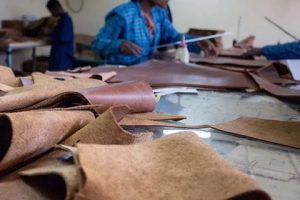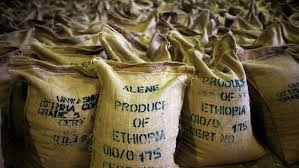
According to sources obtained from the Ministry of Foreign Affairs about five million Ethiopian Diasporas are resided in USA, Europe, Canada, the Middle East and the rest of the world.
Most of the Diaspora living in the economically advanced countries are employed and earn handsome amounts of money and send portions of it to their relatives living in their home country in the form of remittances, which contribute to the nation’s Gross National Product (GNP).
Most Ethiopian Diasporas residing in the Middle East and Gulf States are working as housemaids and supporting their relatives at home by sending hard currency.
Cognizant of the role of the Ethiopian Diaspora in the nation’s economic development endeavor, government in the last three decades tried its level best to attract them to come here and be part on the development efforts. It provided land to construct their residential houses, facilitated them to open bank account and to deposit their hard currency and use it as per the requirement of the National Bank.
Currently, a number of Diaspora has come here and invest their money and engaged in large scale farm, manufacturing and service sectors and created job opportunities to thousands.
Recently, the Ethiopian Diaspora Service (EDS) announced that, the new macro-economic reform has created favorable conditions geared to benefit the Diaspora community by providing substantial benefits
As part of the country’s macro-economic reform, an application called “unite.et” that enables the opening of accounts and transfer of foreign currency has been launched, it was learned. Through this application, it is possible to open foreign currency accounts with the desired amount, including current, savings, and fixed-term options.
Ethiopians living inside the country and abroad as well as foreigners of Ethiopian origin and foreigners residing in Ethiopia can access the service. The Ethiopian Diaspora Service Deputy Director General, Belayneh Aknaw told local media that the macro-economic reform has brought numerous benefits to the Diaspora community.
One of these benefits is enabling the Diaspora community to legally exchange foreign currency and prevent illegal transfers. Allowing the Diaspora community to open foreign currency accounts within the country will enable them to participate in various investment sectors, he added.
According to him, this will increase the country’s foreign currency reserves. The reform provides opportunity for the Diaspora community to significantly contribute to the country’s economy, both directly and indirectly. The Deputy Director General revealed that the country expects to get 6 billion USD in remittances this Ethiopian fiscal year.
In addition, the Diaspora community has been strengthening its participation in the construction of the Grand Ethiopian Renaissance Dam (GERD). For instance, 329,000 USD has been raised through a recently launched platform, Belayneh stated.
Since the beginning of the GERD project, the Diaspora community has contributed 50 million USD, and efforts are being made through various initiatives to raise 3 million USD this year.
The Ethiopian Diaspora Service revealed that Ethiopians in the Diaspora and foreign nationals of Ethiopian origin have legally transferred an average remittance of over 4.5 billion USD annually during the last five years, it was learnt. The participation of the Diaspora in the calls for nation in the development of the country is ever growing.
He also said that the amount of foreign exchange remittance legally sent home by Ethiopians and foreign nationals of Ethiopian origin is steadily growing. The amount of remittance transferred during the reform years have greatly increased compared to the amount transferred during the pre-reform years. This is due to the reformative actions taken to enhance the participation of the Diaspora in the national economy, Belayneh stated.
The Deputy Director General noted that various activities have been conducted in cooperation with concerned stakeholders to establish an efficient and alternative legal means and systems in which the Diaspora can transfer money.
He further stated that over the last eight months of last fiscal year, 1,745 Diaspora members have opened accounts in domestic banks and deposited more than 2.2 million USD.
According to the Deputy Director General, lands have been delivered for the execution of 210 development projects of the Ethiopian Diaspora worth 17 billion Birr during nine months of the last fiscal year. He added that 21 of these projects have now become fully operational providing employment opportunities for 1,000 Ethiopians.
Furthermore, more than 17 million USD has been collected over the last 9 months from the Diaspora in kind and cash to the construction of GERD, Dine for the Nation initiative and other philanthropic and development programs.
Belayneh stated that differences on outlooks on various issues of the country did not deter members of the Ethiopian Diaspora community to participate in all development issues of the country.
He further explained that the government is doing everything to scale up the participation of the Diaspora in cooperation with concerned stakeholders and regional governments urging the Diaspora to continue responding to the calls of their country and participate in the development of the nation.
Minister of Planning and Development, Fitsum Assefa recently delivered reports on the economic performance and the Second phase of Homegrown Economic Development performance to the Council of Ministers as well as key development plan for the next fiscal year. Over the last 10 months of the past fiscal year, Ethiopians in the Diaspora have delivered a remittance of 4.2 Billion USD, the Minister reported.
As to her, to attain Ethiopia’s economic development endeavor obtaining money, technical support, knowledge transfer and capital is critical and to that end, the role of the Diaspora is immense. She further said that countries such as China and Japan, in their economic growth formative years, the Diasporas’ money brought from abroad in the form of remittance that played pivotal role in lifting up millions out of abject poverty.
Particularly in 1980s, 10 billion Dollar remittance was sent by the Chinese Diaspora and helped the country in expanding the manufacturing and transforming agriculture from subsistence to surplus production.
She also said that currently, the government has identified sectors that need foreign investment and among others, manufacturing, Information and Communication Technology, tourism and mining can be mentioned.
According to the International Migration Organization, many countries’ experiences indicate that Diasporas not only send remittance to their country of origin but also brought their technical skills and knowledge and engaged in various economic activities.
For instance, thousands of Nigerian Diasporas working as physicians and engineers in USA and Canada and side by side with sending money, they came to their country to engage in serving their country and teach in universities and to that end the government plays pivotal role in supporting their programs.
The inflow of remittance money is vital to shore up foreign currency shortage, enhance the nation’s foreign currency reserve accumulation, strengthen the nation’s capacity to serve its debt and stimulate the economy. But it only happens when the money comes in the formal and legal channel. The other way round has its own negative consequence.
If it came through the informal channel, it exacerbates black market, aggravates inflation, creates scarcity of commodities in the market, dry up the flow of hard currency to the banks in the formal way, recess export and increases illegal trade and consequently hampers economic growth.
In the past, there was a huge gap in the Dollar with Birr exchange rate between the formal and the parallel market. as the result, the Diaspora living abroad preferred the informal channel to send money to their relatives because in the parallel market their relatives earn more Birr than in the formal channel which is in bank. And such practices for long had detrimental effect on the economy.
The recently introduced new exchange rate regime more or less narrowed the gap of the exchange rate of Birr-Dollar and inspired by this new development, Diasporas enhanced their sending remittance in the formal channel which in turn alleviates the nation’s hard currency shortage.
Hence, the ongoing measures taken by the government to create enabling environment to the Diasporas to send the remittance in the formal channel and deposit it in bank can be said remarkable.
BY ABEBE WOLDEGIORGIS
THE ETHIOPIAN HERALD SUNDAY EDITION 20 OCTOBER 2024




